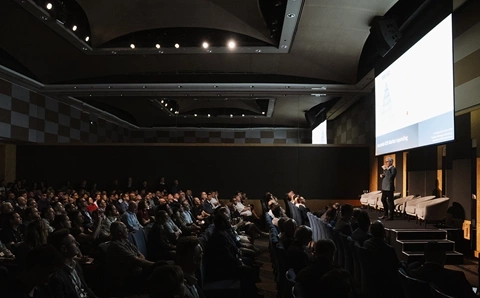Storage area network (SAN) vendor Compellent has launched its first Australian office, announcing plans to more aggressively pursue local clientele.
Founded in 2002, the company boasted more than 2,000 users from 35 countries, including 26 customers in Australia.
Compellent touted a patented "fluid data" architecture that operated as a "storage hypervisor" to automatically shift data according to its use.
It used off-the-shelf spinning disks, SSD and fibre-channel storage that could be replaced in parts so customers would not have to "rip and replace" their SANs.
"We're a disruptive technology," the company's VP of worldwide sales Brian Bell (pictured, centre) told customers, partners and media at its Sydney launch event yesterday.
"It's [ANZ] a really important market for us," he said, thanking channel partners Regal-IT, Sententia and XSI for paving its way to Australia.
Compellent appointed Craig Stockdale (pictured, left) as local managing director and Stephen Madden (pictured, right) as solutions architect. Both were based in Melbourne.
The two-man team was supported by 100, 24/7 support staff in the US and worked with resellers and integrators to win and support local customers.
Stockdale said the company had a 2009 revenue of $US125.3 million, a 38 percent increase from $US90.9 million in 2008.
"This is a tremendous time for us to be making a local investment," he said.
Madden said Compellent rivalled storage vendors like EMC, NetApp - "anyone who sells spinning disks".
Global customers included Microsoft, Heineken and managed hosting provider Savvis.
Local customers included KPMG, James Cook University, Sportsbet and Pepper Homeloans. It was also in discussions with "a very large telco", Madden told iTnews.
James Henshaw, head of IT at Pepper Homeloans, said it had acquired 11.2 TB of Compellent equipment since 2007, to replace NetApp storage stacks.
Pepper's SAN comprised three Compellent enclosures that were managed in "10 minutes each day" by a single sysadmin.
An additional 4.7 TB enclosure was on its way, Henshaw said.
"We're happy with what we have currently," he said, adding that Pepper would likely only consider cloud storage after three years.







_(21).jpg&h=142&w=230&c=1&s=1)
.png&h=142&w=230&c=1&s=1)



.jpg&w=100&c=1&s=0)
_(8).jpg&w=100&c=1&s=0)









